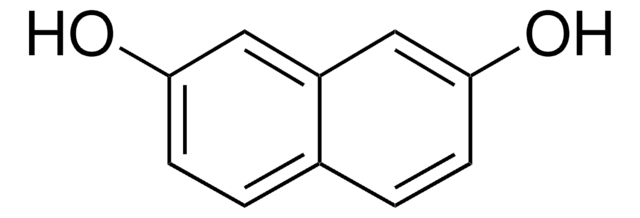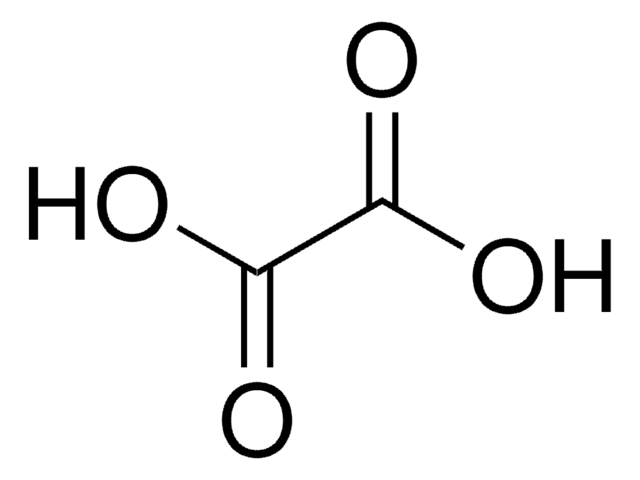1.04106
Glycolic acid
for analysis EMSURE® Reag. Ph Eur
Synonym(s):
Glycolic acid, Hydroxyacetic acid
About This Item
Recommended Products
vapor pressure
10.8 hPa ( 80 °C)
Quality Level
product line
EMSURE®
Assay
≥99.5% (acidimetric)
form
solid
potency
2040 mg/kg LD50, oral (Rat)
impurities
≤0.5% Water (Karl Fischer)
pH
2 (20 °C, 50 g/L in H2O)
bp
100 °C (decomposition)
mp
74-78 °C
transition temp
flash point >300 °C (decomposition)
solubility
water: soluble at 20 °C
density
1.49 g/cm3 at 25 °C
bulk density
600 kg/m3
cation traces
Fe: ≤5 ppm
heavy metals (as Pb): ≤10 ppm
storage temp.
2-30°C
SMILES string
[O+H2]CC(=O)[O-]
InChI
1S/C2H4O3/c3-1-2(4)5/h3H,1H2,(H,4,5)
InChI key
AEMRFAOFKBGASW-UHFFFAOYSA-N
Application
- An Overview of Poly(lactic-co-glycolic) Acid (PLGA)-Based Biomaterials for Bone Tissue Engineering: Discusses the synthesis and physicochemical characteristics of PLGA composites containing glycolic acid (P Gentile, V Chiono, I Carmagnola - International Journal of Molecular Sciences, 2014). Read more.
Analysis Note
Identity (IR): passes test
Melting range (lower value): ≥ 75 °C
Melting range (upper value): ≤ 79 °C
Heavy metals (as Pb): ≤ 10 ppm
Iron (Fe): ≤ 5 ppm
Water (K. F.): ≤ 0.50 %
Legal Information
Signal Word
Danger
Hazard Statements
Precautionary Statements
Hazard Classifications
Acute Tox. 4 Inhalation - Eye Dam. 1 - Skin Corr. 1B
Storage Class Code
8A - Combustible, corrosive hazardous materials
WGK
WGK 1
Flash Point(F)
572.0 °F - (decomposition)
Flash Point(C)
> 300 °C - (decomposition)
Certificates of Analysis (COA)
Search for Certificates of Analysis (COA) by entering the products Lot/Batch Number. Lot and Batch Numbers can be found on a product’s label following the words ‘Lot’ or ‘Batch’.
Already Own This Product?
Find documentation for the products that you have recently purchased in the Document Library.
Our team of scientists has experience in all areas of research including Life Science, Material Science, Chemical Synthesis, Chromatography, Analytical and many others.
Contact Technical Service





